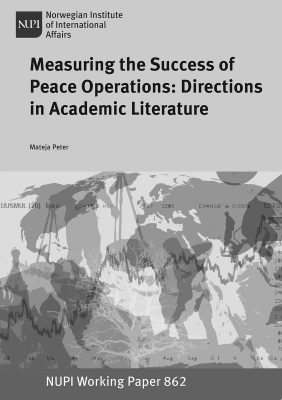While some operations are relatively easy to put into boxes labelled ‘success’ and ‘failure’, most are not. Understanding what constitutes success and failure in peace operations is necessary for building rigorous scholarly knowledge about international interventions and their effects, and for making sound policy decisions.
Despite the growth in the study of peace operations, on UN peacekeeping in particular, one important aspect has been under-researched: how to judge whether a peace operation has been successful or not. Evaluation studies tend to focus on the sources of success, at the expense of the criteria employed in assessing success. Researchers generally draw on their personal predispositions and ideas as to what success means, and then focus on the various factors that contribute to it. However, analytically speaking, determining what is meant by success must be the first step.
This background paper examines how the academic literature has approached the question of success in peace operations.
